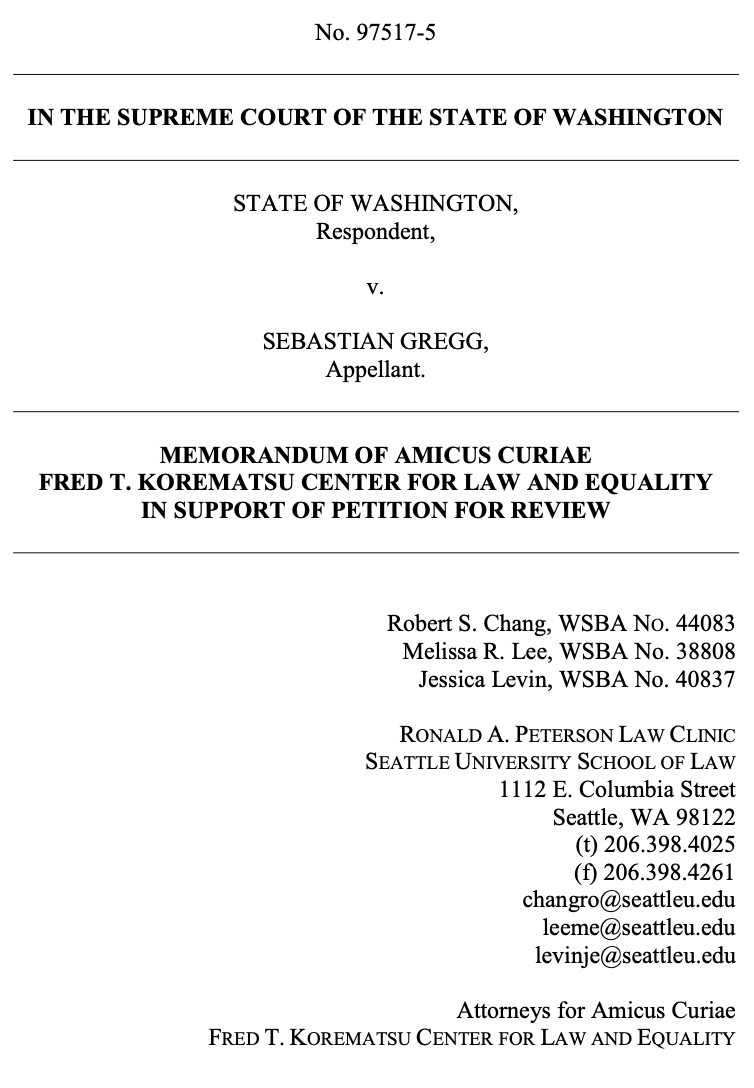
Summary of Argument
Sebastian Gregg was 17 years old when he was charged, convicted, and sentenced for his crimes. Pet. for Review at 4. Without full consideration of Mr. Gregg’s particular circumstances, he was automatically declined into adult court and subjected to adult punishment under the Sentencing Reform Act (SRA). Under RCW 9.94A.530(1), Mr. Gregg bore the burden of proving his own diminished culpability to receive an exceptional sentence below the standard range. This statute violates article I, section 14 as applied to Mr. Gregg. He, like any other child, is inherently less culpable than his adult counterparts. For a standard range sentence to meet the strictures of article I, section 14, the State must prove beyond a reasonable doubt that a child’s culpability is equivalent to an adult’s. Review is warranted under RAP 13.4(b)(3) and (4) to ensure that the procedures governing the sentencing of children in adult court manifest the heightened protection of article I, section 14.